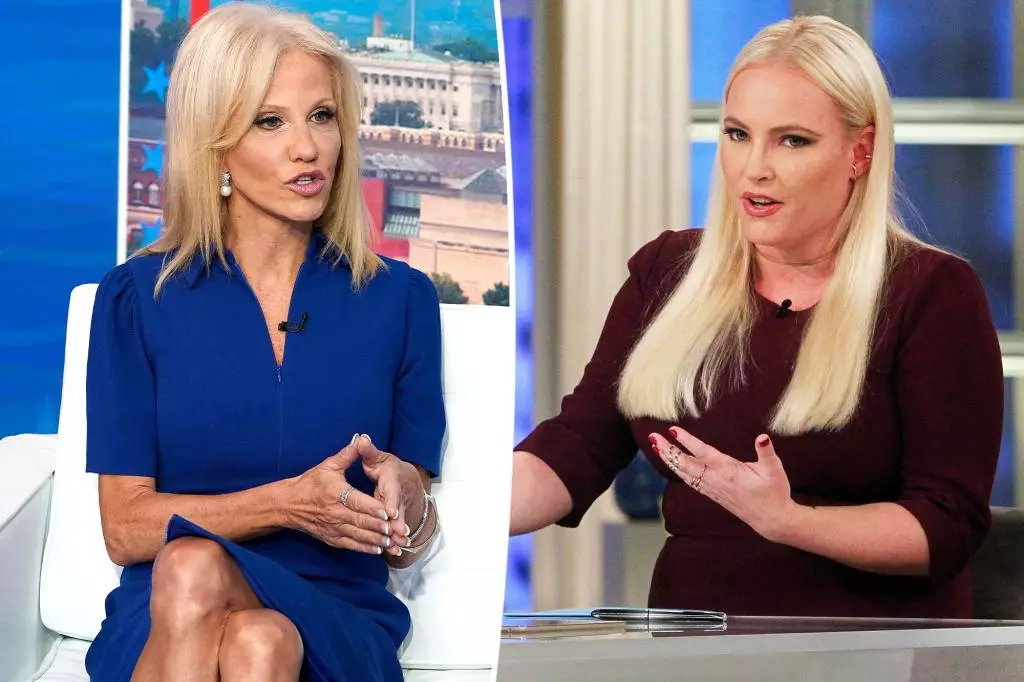In the ever-shifting landscape of American politics, few events capture the public’s attention like a confrontation between two prominent figures. The recent incident involving Kellyanne Conway and Meghan McCain has sparked a flurry of speculation and differing accounts, underscoring the complexities of personal interactions in the political arena. This article delves into the nuances of this encounter, highlighting the varying perspectives and implications of their clash.
The discord unfolded after a panel discussion at a Washington Post-hosted event, where Conway and McCain were key speakers. This backdrop, a Women’s Summit organized by journalist Tina Brown, was meant to celebrate women’s voices in politics, yet it quickly morphed into a heated exchange that drew attention for all the wrong reasons. In current times, media narratives tend to amplify such confrontations, framing them not only as personal dramas but also as indicative of the broader political climate. Thus, the way Conway and McCain handled this situation reflects not just their personal grievances, but also the polarized environment existing in the political landscape.
Eyewitness accounts of the exchange diverge significantly. Some observers report that Conway confronted McCain in an aggressive manner, accusing her of being “disgusting” and hurting others. McCain’s reported response, indicating discomfort and a desire for personal space, suggests she felt cornered in an already charged atmosphere. Meanwhile, other witnesses characterize the interaction differently, describing Conway as calm and measured in her approach, aiming to convey her discontent more assertively. This divergence illustrates the subjectivity in interpreting emotional exchanges, particularly when celebrity and political personas are involved.
McCain’s emotional stakes were also high, given her family’s tumultuous relationship with Donald Trump, highlighted by his infamous remarks regarding her father, the late Senator John McCain. When McCain invoked her family’s pain in reference to Trump, it showcased her complex emotional layers and the influence of personal history in public confrontations. This moment serves as a poignant reminder that political figures are often just as human as the electorate they serve, grappling with personal grievances that transcend the political landscape.
Kellyanne Conway’s insistence that she maintained professionalism, despite the described intensity of the situation, raises questions about the nature of decorum in political discourse. Such claims prompt a broader dialogue about the standards of behavior expected in professional environments that often border on the personal. The reproduction of this incident in media narratives serves as an archetype for analyzing how public figures manage conflicts and the perception of professionalism in political spheres.
Whether Conway was indeed shouting or calmly presenting her views may matter less than the implications of her attitudes on public discourse. The exchange has highlighted the emotional toll that politics can take on individuals, particularly during turbulent times when personal lives become entwined with political ideologies. As public figures, the onus is often on them to maintain a level of decorum that may not always align with their genuine feelings, a conflict that can lead to emotionally charged encounters.
The fallout from this confrontation invites an examination of the broader implications for political discourse in contemporary society. Listening to opposing viewpoints and maintaining respect even amid disagreement is vital in fostering a healthier political climate. The incident emphasizes a growing need for public figures to engage meaningfully while alleviating personal grievances in a constructive manner.
As this incident continues to reverberate in political and media circles, it serves as a watchpoint for observers of political behavior. Political exchanges like this one are not merely entertaining spectacles but reflect deeper societal tensions that require thoughtful engagement rather than escalation. Future interactions among key political figures may benefit from this awareness, establishing a standard where dialogue triumphs over discord.
The Kellyanne Conway-Meghan McCain incident encapsulates the myriad challenges encountered within the realm of political discourse. It urges us to examine not just the actions of individuals but the broader narrative dynamics that shape these encounters. As personal emotions intertwine with the political fabric, the essence of respectful dialogue becomes ever more crucial.

